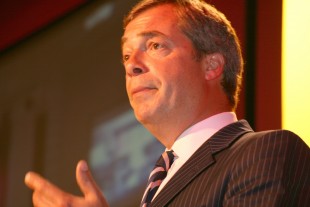
A Seat for Farage?
Survation’s latest poll in Folkestone & Hythe has placed support for Farage, if he were to stand, at 33% – just 3 percentage points behind the Conservative’s Damian Collins on 36%. The gap between the two parties has more than halved since our poll in December when the Conservatives had a lead of 7pp. It is worth noting that a primary change in the way the two polls were conducted was that in December’s poll interviewees were asked for voting intention by party, whilst in our recent poll they were asked given a specific candidate for each party (notably, Damian Collins the Conservative incumbent and Nigel Farage for UKIP).

However, despite the narrowing of the gap between UKIP and the Conservatives, the recent rise in UKIP support has not been coming from Conservative voters whose support has also risen by 1pp. The rise in the last 4 months has come at the expense of Labour, and smaller parties.
The rise from smaller parties could be in part due to the naming of Farage as the UKIP candidate. For voters looking to alternative parties to challenge the status quo, Farage’s potential candidacy presents an opportunity to see an “alternative” candidate win the seat.
The transfer of votes from Labour to UKIP in the face of Farage’s candidacy is perhaps more surprising – those who voted Conservative in 2010 are 50% more likely to think favourably of Farage than their Labour counterparts.  However, perhaps the gain is from the 10% of 2010 Labour voters who said Farage standing would make them “much more likely” to vote UKIP, vs. only 8% of 2010 Conservative voters.
However, perhaps the gain is from the 10% of 2010 Labour voters who said Farage standing would make them “much more likely” to vote UKIP, vs. only 8% of 2010 Conservative voters.
The question for UKIP now will surely be which voters to target to turn this narrow Conservative lead into a UKIP victory. Whilst Labour voters have been good to them recently, it appears that card may have been exhausted. 29% of 2010 Labour voters in the area now intend to vote for UKIP, but those currently intending to vote Labour are the least likely to consider switching allegiances (70% say they would not consider voting UKIP).

Instead if UKIP can successfully attract Conservative voters there are huge gains to be made. For starters, any gains made from the Conservatives reduce the gap in two directions so the gains required are smaller. UKIP would need to attract only 4% of Conservative voters to see victory. This against a backdrop where 4% of those currently intending on voting Conservative would “definitely consider” voting UKIP, and a further 9% would “probably consider” suggests this is not an unachievable aim. The Conservative supporters are also the only group (other than UKIP) where Farage is more popular than not, so his candidacy could certainly be used to draw in votes.
In December’s poll 19% of Conservative supporters said they would vote UKIP if there were no Conservative candidate – more than double the number of Labour supporters who would do the same in the absence of a Labour candidate. There is plenty of room for UKIP to win voters from the Conservatives. If they can do so without losing their recent Labour converts this will be a very interesting race.
December poll tables available here. April poll tables available here.
– By Lucy Makinson, Researcher
< Back

